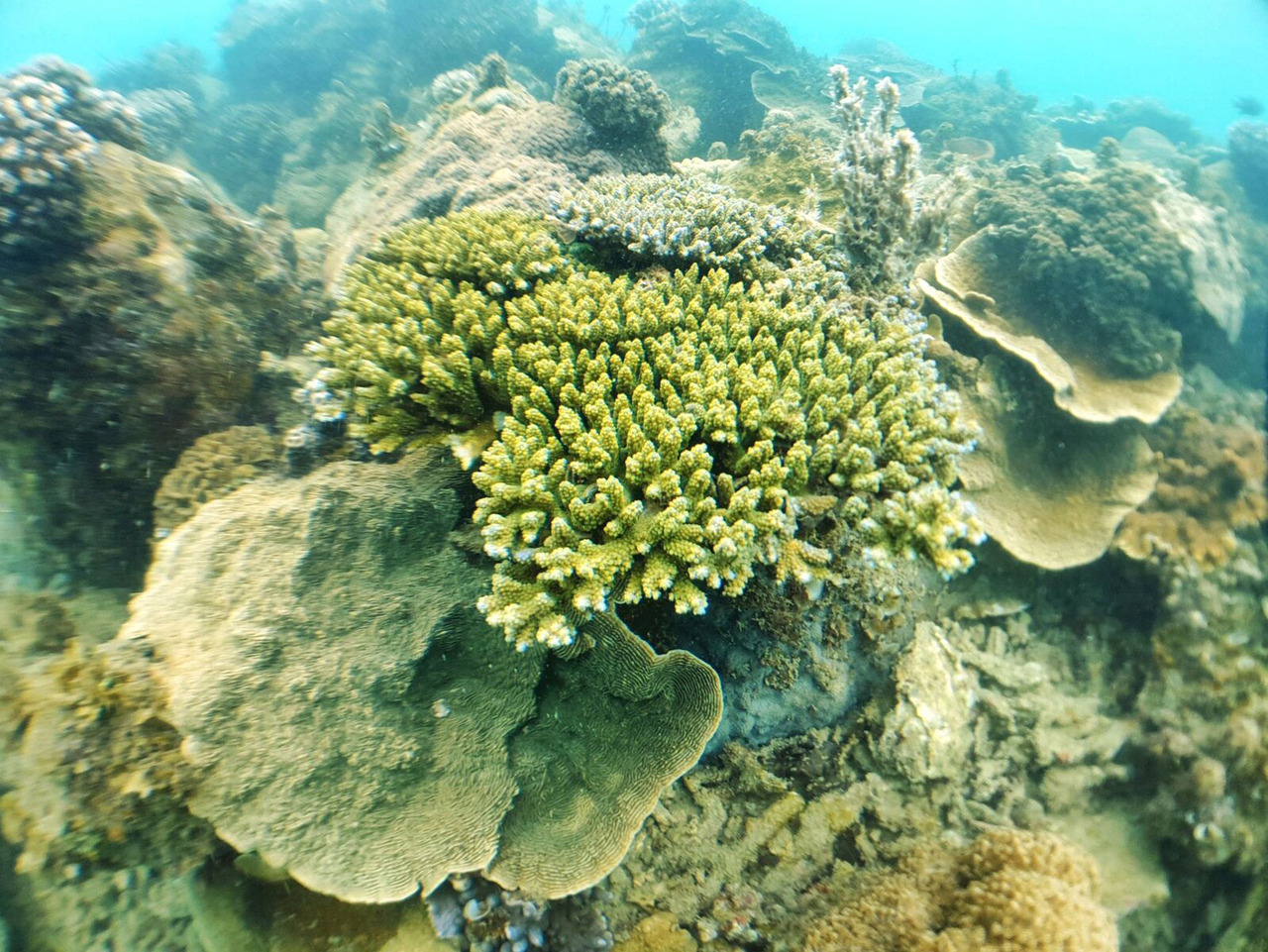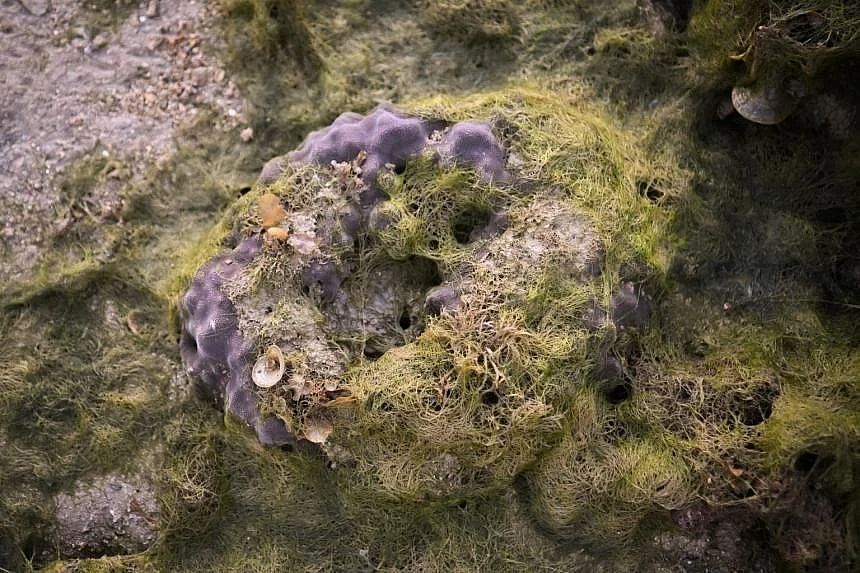Can solar energy power coral growth? Research effort one of S'pore's initiatives to safeguard oceans
Sign up now: Get ST's newsletters delivered to your inbox

The project aims to test the feasibility of using very low voltage electrical currents to aid the growth of coral fragments.
PHOTO: NPARKS
Follow topic:
SINGAPORE - Singapore is undertaking various initiatives to improve the health of the ocean, including a research effort that aims to study if solar energy can be used to power coral growth.
Dr Karenne Tun, a director at the National Parks Board's (NParks) National Biodiversity Centre, told The Straits Times last week that the project aims to test the feasibility of using very low voltage electrical currents to aid the growth of coral fragments in Singapore waters.
A healthy and diverse coral reef maintains and drives other beneficial ecological processes, she said. For example, a healthy reef can support healthy food webs and is also more resilient to harmful species invasions.
"Findings from this project will help facilitate coral restoration works in other marine areas with similar water sedimentation and light conditions," Dr Tun added.
The project is one of nine new initiatives that the Republic is undertaking to boost the health of the oceans.
The nine, which include efforts to reduce the carbon footprint of the emissions-intensive maritime sector and an environmental training course, were announced by Minister for Foreign Affairs Vivian Balakrishnan during the United Nations Ocean Conference in Portugal last month.
Singapore is a tiny island, a maritime city-state, whose history, people and economy are inseparable from the ocean, Dr Balakrishnan said then.
"Our survival, our prosperity depend on the oceans... The ocean provides food, jobs and livelihood. It enables global trade, and it plays a vital role in the climate systems and the water cycle, and is an important reservoir of biodiversity," he added.
Dr Balakrishnan said the conservation and sustainable use of the ocean must be conducted under the aegis of international law, and that such efforts should also be based on data and science.
Multilateral cooperation is needed to protect the health of the oceans, he added.
"While Singapore is tiny, we are doing our part," Dr Balakrishnan said, in announcing the Republic's new voluntary commitments to the United Nations.
Commitments made by countries during the conference are listed on the website of the UN's Department of Economic and Social Affairs.
Of the nine commitments Singapore is undertaking, three are environmental research projects.
Other than the coral research project, the other two initiatives include a $25 million Marine Climate Change Science programme, which was announced in March 2021 by the National Development Ministry; and a study on the sustainable management of marine fish populations by marine biologists at NParks and the National University of Singapore.
"Mapping the connectivity of fish populations can provide insights into the connectivity between marine habitats in Singapore and inform the sustainable management of fish larvae," Dr Tun said.
Singapore has also committed to five new measures to reduce the environmental impact of the shipping industry.
"On the shipping front, we are spearheading a transition towards the supply of environmentally friendly ship fuel, and are actively involved in promoting green financing and building capacity in carbon accounting within the maritime industry," Dr Balakrishnan said.
"We are also incentivising shipowners to switch to energy-efficient technologies and low or zero-carbon fuels."

A spokesman for the Maritime and Port Authority of Singapore (MPA) said maritime decarbonisation is a global challenge requiring collective action, and that it is committed to working towards clean shipping and the protection of the marine environment.
"MPA works closely with stakeholders across the maritime value chain, complementing the efforts by the International Maritime Organisation, and based on a multilateral and coordinated approach to developing maritime decarbonisation solutions," she added.
This year, Singapore will also be conducting three courses - for government officials and policymakers from developing countries - on the international law of the sea, managing coastal biodiversity under urbanisation pressures, and environmental conservation and sustainability, under the Singapore Cooperation Programme, said Dr Balakrishnan.
The programme was launched in 1992 to share Singapore's development experience and extend technical assistance to fellow developing countries.

